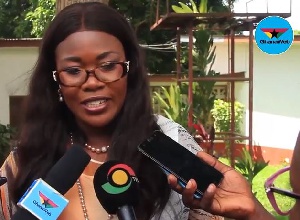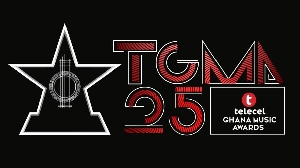General News of Wednesday, 27 June 2018
Source: www.ghanaweb.com
Ghana needs to embrace Open Distance Learning – Prof. Goski Alabi
Government must expand access to higher education in order to enhance the delivery of quality tutoring in tertiary institutions across the country, Consulting Vice Chancellor of the Laweh Open University, Professor Goski Alabi has reiterated.
Despite having acknowledged that one of the major difficulties with deploying Open University in Ghana is the lack of training in digital education, she debunked the assertion that distance and open learning lack eminence.
Prof. Goski Alabi assured that the mode of gaining knowledge through digital education, when done properly, makes it difficult to ‘cut corners.’
She explained, “the reason why it’s difficult to cut corners with this form of education is that it is very structured and standardized so that every week you know what is supposed to be taught and whether the lecturer has taught it or not, can be determined by the type of technological system made available.”
Professor Alabi was speaking at a workshop on overview of Open and Distance Learning themed ‘Train the Trainer Induction Workshop.’
The event was jointly organized by the Commonwealth of Learning (COL) and Regional Training Research Institute for Distance and Open Learning (RETRIDOL) National Open University of Nigeria.
The concept of open learning and distance education system focuses on open access to education and training to make the learners free from the constraints of time and place, and offering flexible learning opportunities to individuals and groups of learners.
She added that the system will relieve universities of the stress of having to enroll too many students they may be unable to cater for while revealing that the current gross enrolment ratio for Ghana at the tertiary level is only 16%.”
Breaking the above analysis down, she said that “if 100 people qualify to enter the university only 16 people can have access to university education in Ghana and that obviously is not enough.”
Prof. Goski Alabi urged policymakers as well as key players in higher educational institutions to join the academic community in discovering and exploring the internet, teleconferencing, and related means to achieve an extended classroom or learning experience.
Similarly, a Professor at the University of Ghana, Prof. Olivia Kwapong stated that there should be no barrier or limitation in the case of Open Distance Learning (ODL) in the country.
According to her, ODL should be made easily accessible like counterparts in the western world to enhance skills through quality education.
“I feel that we in this part of the world where we call ourselves developing see education as a tool for human resource development rather than see it as a privilege but to see it as a right and then use it to build a capacity of the average Ghanaian.” She said.













